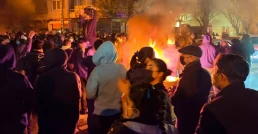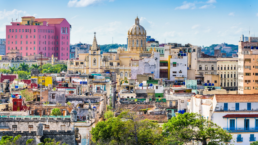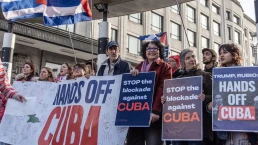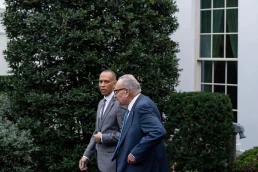Never forget meant never forgive. Never forget meant someone would pay. And with my Muslim name, my South Asian heritage, I knew who that someone would be.
By Nadia Ahmad, LA Progressive
I remember exactly where I was on September 11, 2001. Like millions of Americans, I watched in horror as the towers fell, as the Pentagon burned, as Flight 93 crashed in a Pennsylvania field. Nearly 3,000 lives extinguished in minutes. The phone calls from those trapped. The desperate leaps from burning buildings. The dust-covered faces stumbling through Manhattan streets.
The grief was real. The pain was real. But even then, in those first raw hours, when they started saying “never forget,” I felt something different. A chill down my spine. Because I knew what they really meant.
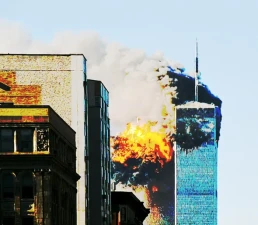
Never forget meant never forgive. Never forget meant someone would pay. And with my Muslim name, my South Asian heritage, I knew who that someone would be.
Twenty-four years later, I was right.
The War Without End
The Brown University Costs of War project has done what our government would not: counted the actual toll of the “War on Terror.” The numbers stop you cold. Over 4.5 million dead from direct violence and war’s reverberating effects. Let that sink in. That’s more than 1,500 9/11s. Every one of those deaths had a name, a family, a story cut short.
We invaded Afghanistan to get bin Laden. We got him a decade later, but in Pakistan. But the war ground on for another decade. We invaded Iraq on false pretenses, unleashing chaos that birthed ISIS. We bombed Yemen, Somalia, Syria, Libya. We turned wedding parties into “bug splats” on drone operator screens.
The financial toll has been $8 trillion since 2001. This year, the House just approved another $892 billion defense budget, nearly a trillion dollars for a single year. That amount is more than the next ten countries combined. These figures are not sustainable, they are economic madness.
Pete Hegseth now calls himself “Secretary of War,” abandoning even the pretense of defense. The Republicans are brutally honest. The Department of Defense has been the Department of War since 9/11.
Liberation Through Bombs
Perhaps nothing was more grotesque than how we sold this carnage. Former First Lady Laura Bush took to the airwaves in 2001, claiming the fight against terrorism was “also a fight for the rights and dignity of women.” Afghan women, we were told, would be liberated by American bombs.
As Rafia Zakaria writes in Against White Feminism, “The logic of white feminism expects women of color to be perpetually grateful that white women are ‘helping’ them, even when that help comes in the form of bombs and occupation.” This was the playbook: position brown women as victims needing white saviors, then use their suffering to justify invasion.
Fast forward to today. Afghan women cannot attend university. Cannot work most jobs. Cannot leave home without a male guardian. Twenty years of war did not liberate them, the United States made them pawns in a geopolitical game. We dropped bombs in their name of women’s rights.
The True Cost of War
In America, we built a $700 million memorial for our 3,000 dead. But where are the memorials for the 70,000 Afghan civilians we killed? The 185,000 Iraqi civilians? They remain nameless, faceless, reduced to “collateral damage” in Pentagon briefings.
Meanwhile, the war machine consumes everything. That $892 billion Pentagon budget is more than we spend on education, public health, and environmental protection combined. We have money for F-35s but not for schools. Money for drone strikes but not for healthcare. Money for 750 military bases worldwide but not for crumbling infrastructure at home.
The war came home in other ways too. Within days of 9/11, Sikh men were beaten for wearing turbans. Balbir Singh Sodhi was murdered at his gas station. The No-Fly List ballooned from 16 names to tens of thousands. The Patriot Act normalized surveillance. Local police got military equipment. We militarized our society in the name of safety and became less safe.
Memory as Weapon
“Never forget” was never about memory. It was about permission. Permission to wage endless war. Permission to spend $892 billion a year while bridges collapse and schools decay. Permission to normalize what should be unthinkable, a Secretary of War who promises homeland security through eternal warfare.
Twenty-four years later, when they say “never forget,” I ask: Never forget what?
Never forget that we have spent more on war than it would cost to end poverty, fix healthcare, and transform our energy system. Never forget that militarism is eating our future. Never forget that endless war abroad means endless austerity at home.
Never forget? I couldn’t if I tried.
The opinions expressed here are solely the author’s and do not reflect the opinions or beliefs of the LA Progressive.
Recent Posts
Leading Papers Call For Destroying Iran To Save It
February 11, 2026
Take Action Now The opinion pages of the New York Times and Washington Post are offering facile humanitarian arguments for the US to escalate its…
Despite Marco Rubio’s Warnings, This is the Time to Go to Cuba in Solidarity Against the Latest U.S. Aggressions
February 10, 2026
Take Action Now When visiting Cuba, one can see quickly the terrible effects of the almost seven decades of the U.S. economic blockade of Cuba.By…
“Hands Off Cuba!”: Left Groups in Europe Mobilize Against U.S. Aggression
February 10, 2026
Take Action Now Hundreds demonstrated in Belgium in solidarity with Cuba as further mobilizations against US imperialism are planned across Europe.……
Democrats Propose Minor Reforms for ICE — and Record Funding
February 10, 2026
Take Action Now Congressional Democratic leaders are asking ICE to agree to reforms, promising to vote for $11 billion in funding for the agency if…

